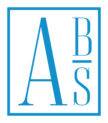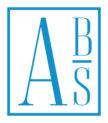As another year comes to a close, Canadian small business owners have a crucial task on their hands: preparing for year-end. While the holiday season may be in full swing, it’s essential not to forget the financial and administrative responsibilities that come with running a business. To help you navigate this period smoothly, we’ve put together a comprehensive year-end checklist that will ensure you start the new year on the right foot.
- Review Your Financial Statements: Begin by reviewing your financial statements. This includes your balance sheet, income statement, and cash flow statement. Analyzing these documents will give you insights into your business’s financial health and help you make informed decisions for the year ahead. If you’re not confident in your financial analysis skills, consider consulting with a professional accountant.
- Inventory Management: If your business carries inventory, take stock of your current inventory levels. This will help you identify any excess or obsolete stock that may need to be written off or discounted. Accurate inventory management is essential for tax purposes and maintaining a healthy cash flow.
- Reconcile Your Accounts: Ensure all your bank accounts and credit card statements are reconciled. This involves matching your financial records with your bank and credit card statements to catch any discrepancies or errors. It’s essential for accurate financial reporting and tax filing.
- Tax Planning: Year-end is the perfect time to assess your tax situation. Consult with a tax professional to identify tax-saving opportunities, ensure compliance with tax laws, and maximize deductions and credits. You might also want to consider pre-paying certain expenses or making strategic purchases to reduce your taxable income for the year.
- Update Employee Records: Review your employee records and ensure that all payroll information, including salaries, bonuses, and benefits, is up-to-date and accurate. Don’t forget to prepare T4 slips for your employees and submit them to the Canada Revenue Agency (CRA) by the required deadlines.
- Review Contracts and Agreements: Go through your contracts and agreements with suppliers, customers, and partners. Ensure that they are current, up-to-date, and compliant with any changes in regulations. This will help you avoid any legal issues down the road.
- Plan for Employee Benefits and RRSP Contributions: If you offer employee benefits or have a company-sponsored retirement savings plan (RRSP), make sure to contribute any required amounts before the end of the year. This will help you and your employees take advantage of tax benefits.
- Assess Your Business Goals: Take some time to reflect on your business’s performance over the past year. Did you achieve your goals? What could be improved? Use this reflection as a foundation for setting new business goals and strategies for the upcoming year.
- Budget for the Next Year: Prepare a detailed budget for the upcoming year, considering your revenue projections, expenses, and financial goals. Having a well-thought-out budget will provide you with a roadmap for financial success in the next year.
- Consult a Professional: If you’re feeling overwhelmed or unsure about any aspect of your year-end checklist, consider seeking help from professionals like accountants, lawyers, or financial advisors. Their expertise can ensure that you’re making the right decisions for your business.
Year-end can be a busy time for Canadian small business owners, but with careful planning and organization, you can set your business up for success in the coming year. Use this comprehensive checklist to guide you through the necessary tasks, and don’t hesitate to seek professional assistance when needed. By taking these steps, you’ll be better prepared to tackle the challenges and opportunities that lie ahead for your small business.






